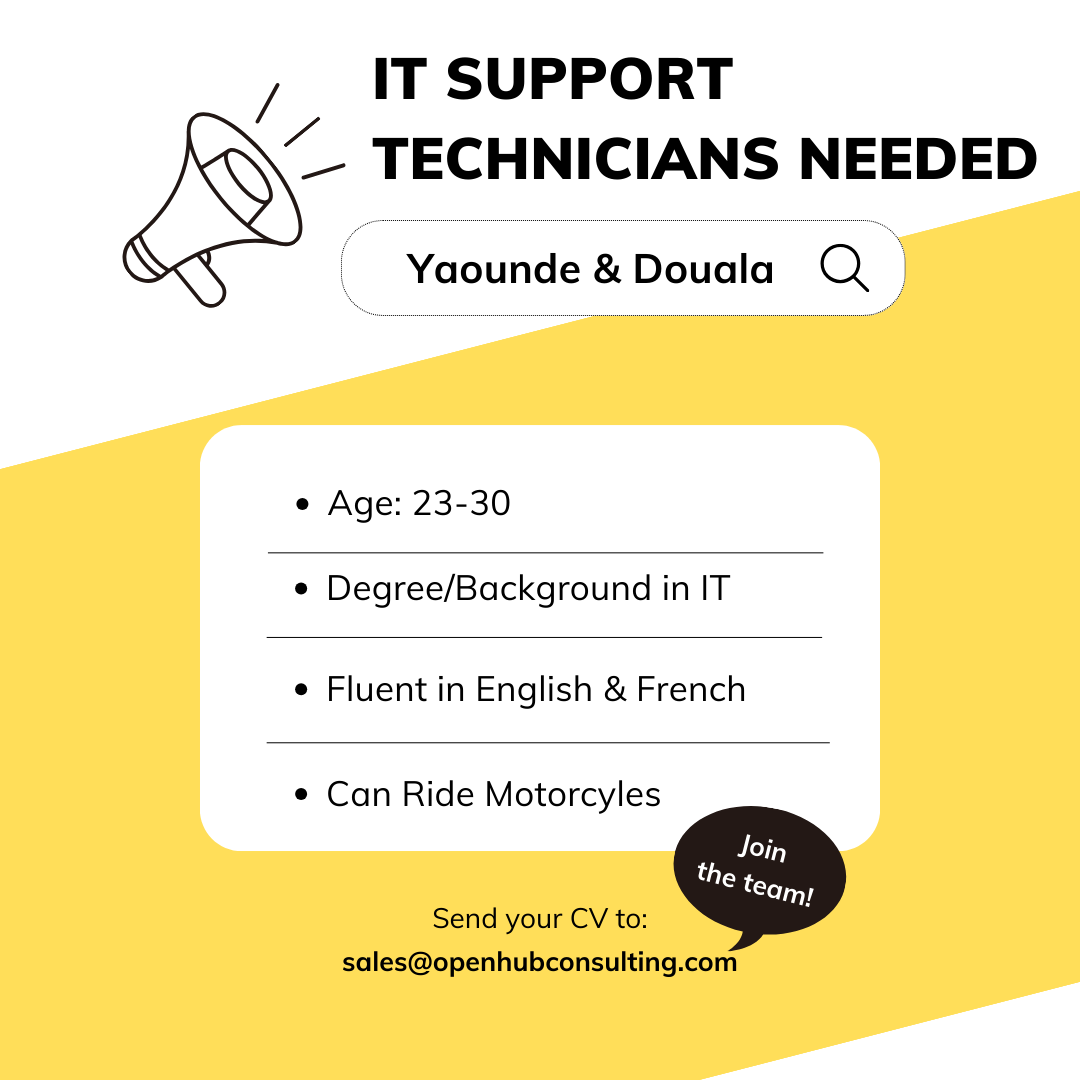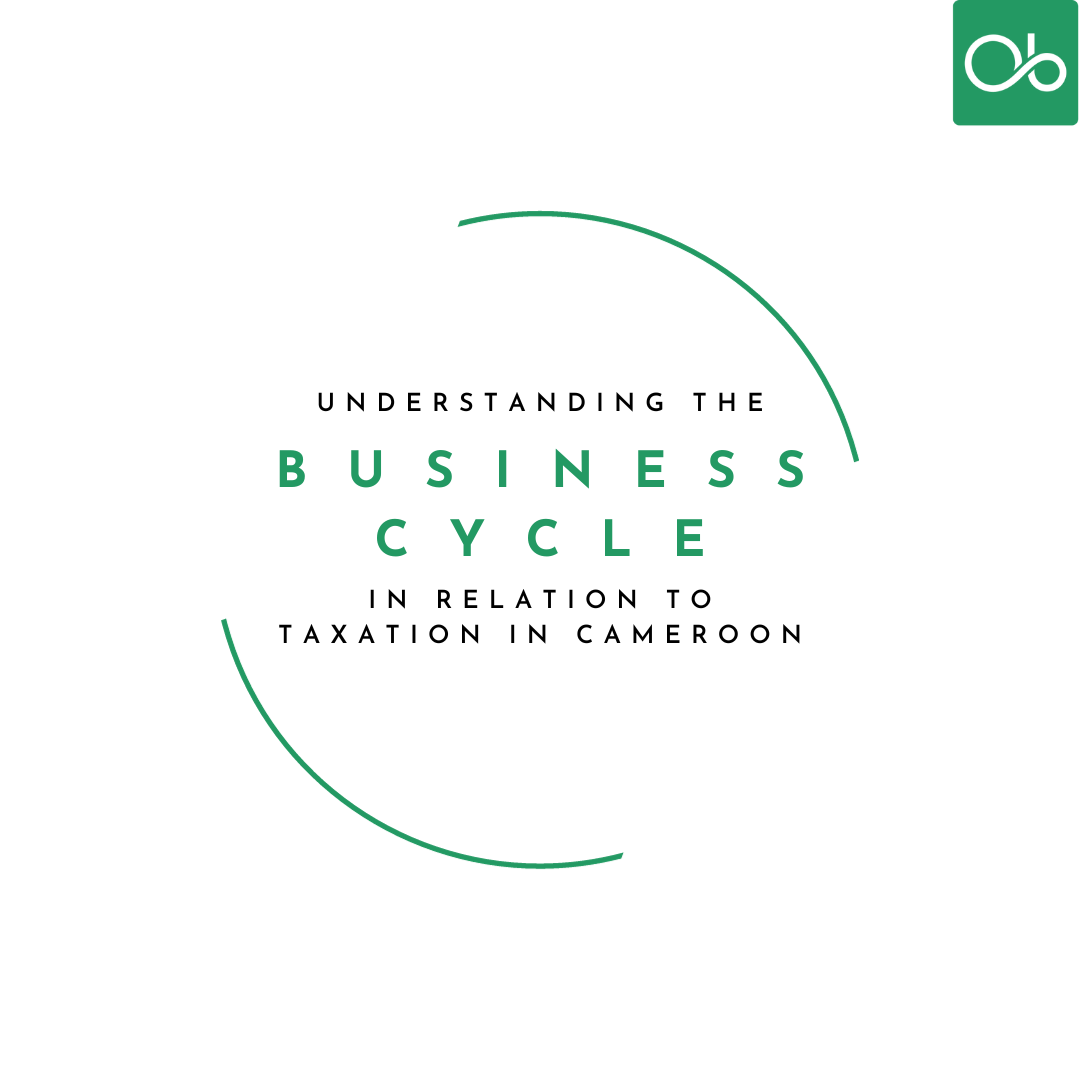IT Support Technicians needed in Yaounde and Douala to placed on-site with clients to provide technical support, software installations, and troubleshooting services.
Company Incorporation
News
Recent Posts
Tax
Free Online Invoice Generator for Cameroon
Free Online Payroll Generator for Cameroon
Online Cameroon income tax calculator
Start Your Online Business Today with MTN NoLimit Internet
With an internet connection, you can launch and run an online venture from anywhere in Cameroon using MTN NoLimit
Open-end investment companies
Open-end investment firms, known as SICAVs (Société d’Investissement à Capital Variable), are financial structures pooling funds from investors for diversified portfolio investments like stocks, bonds, or other instruments. Offering unlimited shares, SICAVs offer liquidity and risk diversification, while being subject to regulatory oversight for investor protection. These companies are tax-exempt in Cameroon.
Mutual investment funds
Mutual investment funds pool capital from numerous investors and offer access to professionally managed, diversified investment portfolios. They have varying objectives like capital appreciation and income generation, detailed in the prospectus. Managed by professionals, mutual funds issue, redeem units as per investor interest and follow robust risk management practices. They’re subjected to regulatory oversight for investor protection and transparency. Interestingly, they are exempted from paying company tax in Cameroon.
Cooperative societies
Cooperative societies are voluntary associations that promote the economic and social well-being of their members by pooling resources and undertaking collective activities. Key features include democratic control, active member benefit, limited return on capital, and emphasis on education and training. These cooperatives operate across various sectors and can increase bargaining power, improve resource access, and promote sustainable practices. Cooperatives’ structure and benefits are subject to local regulations, such as tax exemptions in Cameroon. Assistance is readily available for those interested in forming or participating in cooperatives.
Mutual credit funds
Mutual credit funds are member-owned cooperatives providing financial services such as savings, loans, and more. They differ from traditional banks as they are not-for-profit, prioritizing members’ financial needs over profits. Membership is open to individuals or businesses meeting specific eligibility criteria. These funds promote financial inclusion, local lending, and community development while being regulated by the relevant financial authorities.
Non-profit private education establishment
Non-profit private education establishments are institutions primarily focused on providing quality education rather than making profits. Privately owned by non-profit organizations, religious groups, or community entities, they encompass a variety of institutions from schools to universities. They rely on multiple funding sources including tuition, donations, and government grants. These institutions often offer a more personalized educational experience with greater flexibility in curriculum and teaching methods compared to public schools, despite charging tuition fees.
Economic interest groups
Economic interest groups are organized associations of individuals or businesses that come together to promote and protect their shared economic interests.
Company Taxation in Cameroon: Determining Taxable Profits and Operating Criteria
The law provides criteria, such as having a headquarters, permanent establishment, or dependent representative in Cameroon, to determine if a business is operating in the country.
Understanding the Business Cycle in Relation to Taxation in Cameroon
Understanding the business cycle concept as per the tax law in Cameroon is vital for businesses operating within the country.










